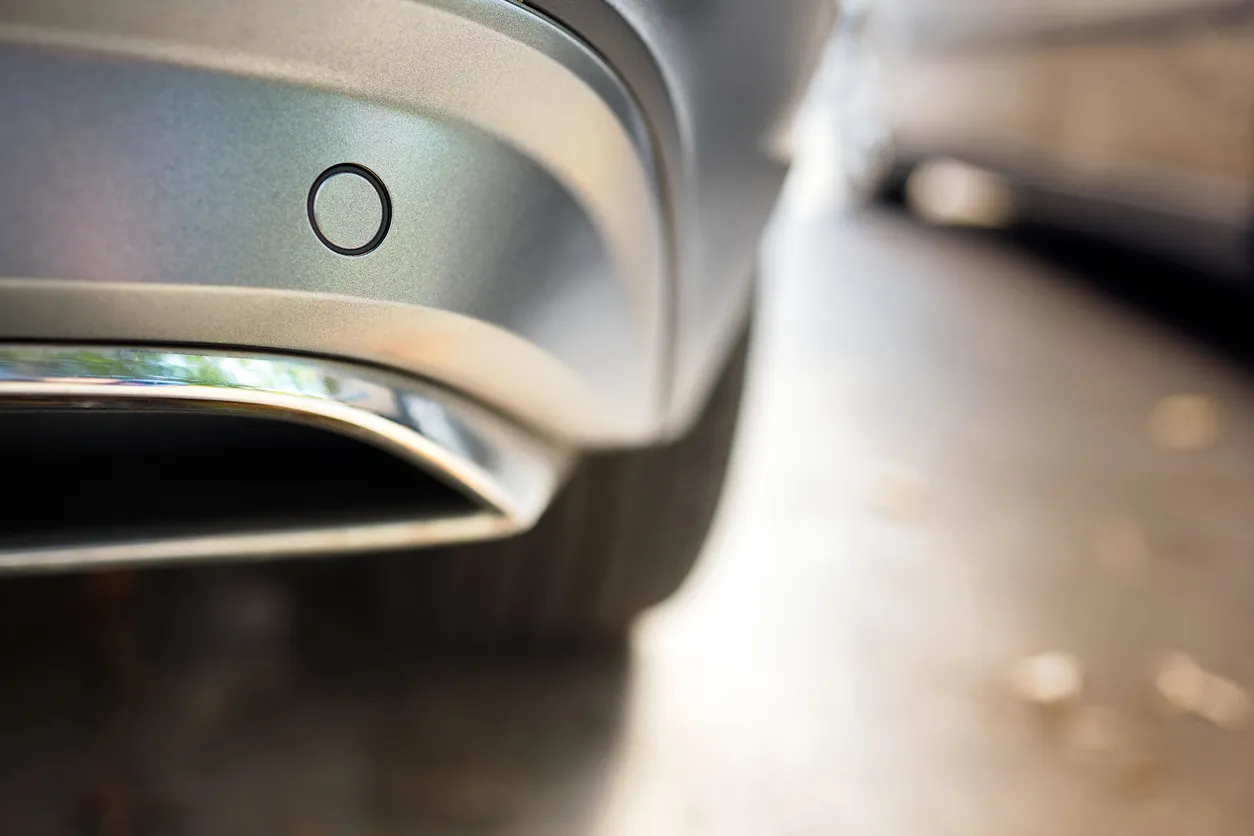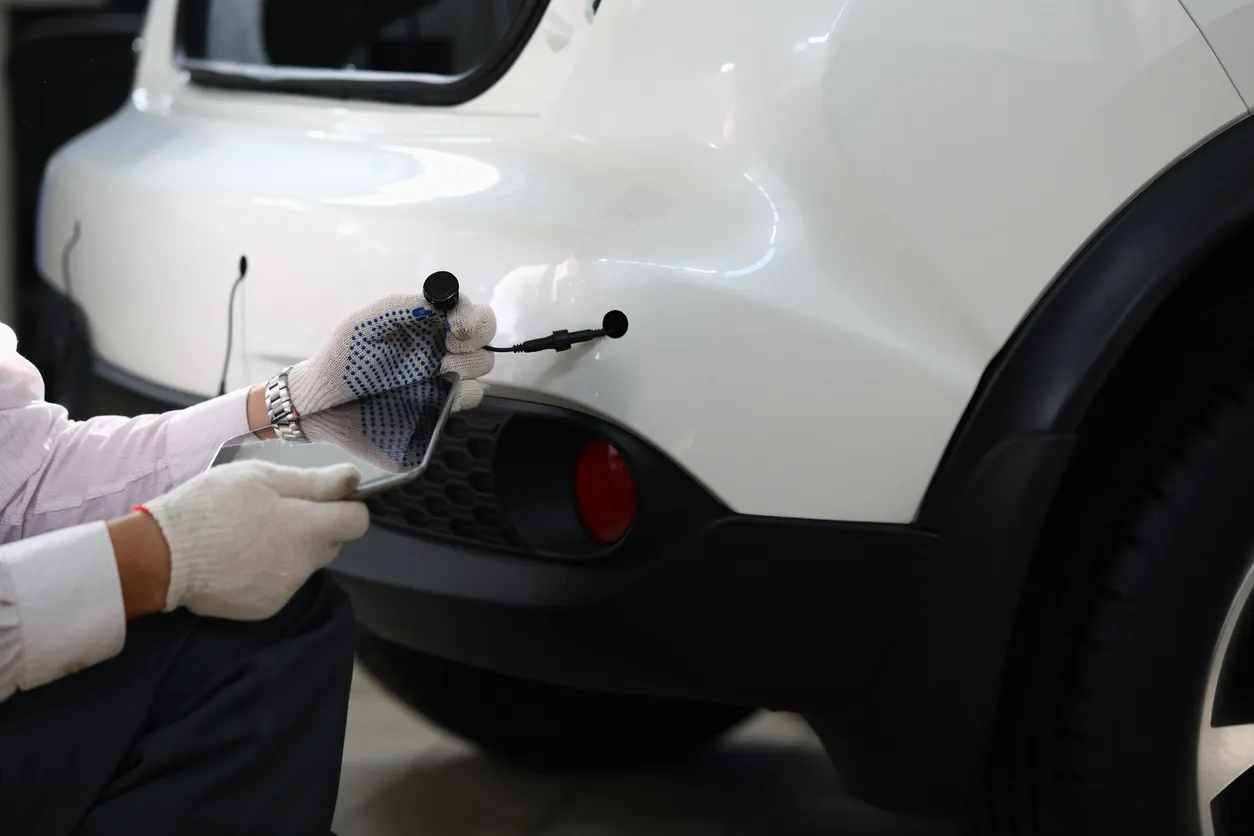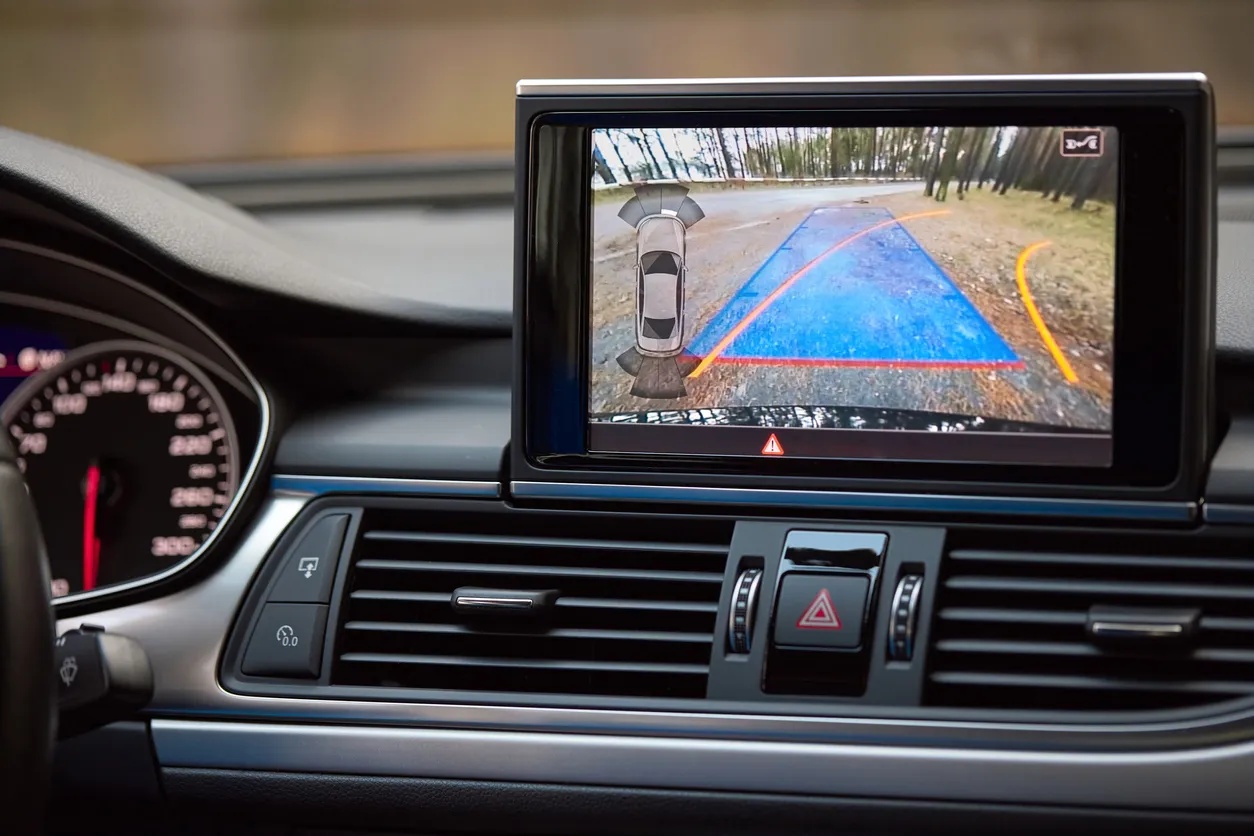How Do Parking Sensors Work?

Parking can be challenging in a vehicle, and while parking, you always run the risk of hitting another vehicle or an obstacle. That's why the invention of parking sensors was so useful. Today, many modern vehicles are outfitted with parking sensors that help you park more safely than before. These sensors give you a way to tell when you're about to back up into an obstacle of some sort. There are many sensors used on vehicles, and they are just one of the several different tools available to modern drivers who want to stay safe while on the road.
What is a Parking Sensor for Cars?
If you want to know what parking sensors are or what is parking assist for a vehicle, it's a tool that's designed to help you avoid colliding with other vehicles or obstacles while parking your vehicle. These sensors:
- Emit ultrasonic waves and listen for those waves to come back.
- Can figure out exactly where obstacles are around your vehicle by using advanced technology.
- Make driving safer for everyone.
- Determine when you're getting dangerously close to obstacles surrounding your vehicle, especially behind your vehicle.
- Give you warnings that you should be cautious.
How Do Parking Sensors Work?
Parking assistance sensors are devices that emit ultrasonic waves and measure how long the waves take to bounce back. By measuring how the waves move, you can determine where objects are around your vehicle. The specialized computer system that tracks the waves emitted by your vehicle's parking sensors can determine when objects are dangerously close to your vehicle. Once objects are detected near your vehicle, your parking sensors can tell your vehicle to emit an alert and stop you from crashing into an object.
What is it Like Using a Parking Sensor?
If you aren't familiar with parking sensors, they can be a bit odd to use for the first time. These protective sensors watch what you're doing, and they make beeping noises whenever you're about to hit an object. If you use these sensors constantly, you will be substantially less likely to crash into an object, especially if you're backing up. Equip your vehicle with a good set of parking sensors, and you'll have all the confirmation you need to know that your vehicle is safe to drive around. While backing up, you'll hear a beeping noise or feel vibrations when you're getting too close to the other objects around you. If you take your time, you can get all the details you need to back up and park properly.
Some Vehicles Have Electromagnetic Proximity Sensors
While the most common type of parking sensor uses ultrasonic waves, there are some sensors that rely on electromagnetic fields instead. These tools rely on electromagnetic frequencies to detect different objects around your vehicle. When you want to know more about the items around your vehicle, this technology makes that possible. That's why many vehicles are now using this type of parking sensor. When you have a car that's equipped with an electromagnetic sensor, you get more detailed information and more accurate readings as well.

Consider a Vehicle with Cameras and Sensors
While a good parking sensor can help you avoid backing into an object or running into something on the sides of your vehicle, cameras give you a view of your surroundings as well. If you want to know exactly what is going on around you before parking, you should consider investing in one of the backup cameras for your vehicle. Many modern cars and trucks come with backup cameras, but not all of them.

If you want to see where you're going when you park, you should invest in a vehicle with high-quality backup cameras. While you're testing different vehicles, you should take the time to learn about all their different features and choose an option that has exactly what you're looking for. You should also take the time to look through a car history report for the vehicle so you can learn more about how it was cared for. If you take the time to review these reports, you'll learn all you need to know to make the right purchasing decision.
Consider Blind Spot Sensors Too
Parking sensors are useful tools that can help you make fewer mistakes when backing up. These powerful sensors are just one of the types of sensors that are available for a vehicle today. There are also blind spot monitors you can use to determine when someone is in the blind spot of your vehicle and when the person is not. If you want to stay as safe as possible, you should get a vehicle with a functional blind spot monitoring system. A good blind spot monitor will help you change lanes safely and drive in most conditions effectively.
Sensors Must Remain Clear to be Usable
If your vehicle comes equipped with parking sensors, blind spot sensors, or any other proximity detection system, you must take steps to keep the sensors free from debris to keep them functional. If snow or dirt builds up over the top of these sensors, you'll lose functionality on the system and have real problems relying on the sensors. That's why it's important to take steps to keep the systems in good working order.
If you're going to get a new vehicle, make sure you get one with parking sensors, if possible. These powerful sensors can help you avoid making mistakes while driving around, and they can keep your vehicle in good condition even when you are parking in tight locations. You should also take the time to get familiar with these sensors and how they function. Take some time to park slowly and see how the different alerts go off while you're parking where you need to. It won't take long before you have a solid understanding of the way the sensors beep, chime, and vibrate when you're parking, changing lanes, and doing anything else with your vehicle.
FREE Vehicle Search
- Accidents
- Problem Checks
- Title Records
- Recalls
- Values
- Specs
-
InfoPay, Inc. (dba GoodCar) is an Approved NMVTIS Data Provider
-
-

















































